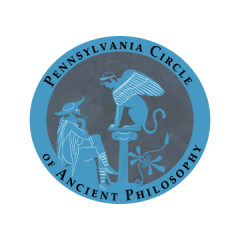Created to “foster a community of scholars committed to the study of ancient philosophy,” the Pennsylvania Circle of Ancient Philosophy will hold its inaugural conference at Duquesne University on February 16th, 2013.
The Circle grew out of conversations among graduate students studying ancient philosophy in at a number of universities in Pennsylvania. Over the summer and fall of 2012, final preparations were made to establish the Circle, and it is exciting to see the fruits of that labor.
The Circle is sure to become a vibrant place of innovative scholarship in Ancient Philosophy as it draws upon a diversity of institutions in Pennsylvania with a long history of excellent scholarship of ancient texts and figures.
The PCAP has, of course, a new website, which we in the APS invite you to visit:
https://pennsylvaniacircleofancientphilosophy.wordpress.com/
The call for papers is available here: https://pennsylvaniacircleofancientphilosophy.wordpress.com/call-for-papers/
According to the initial CFP, the eligibility for submitting to the Circle is limited to graduate students, faculty, and independent scholars working in the state of Pennsylvania.
Even so, the international community of scholars associated with the Ancient Philosophy Society should celebrate the emergence of a new circle of scholars interested in fostering a community of scholarship in Ancient Philosophy.





